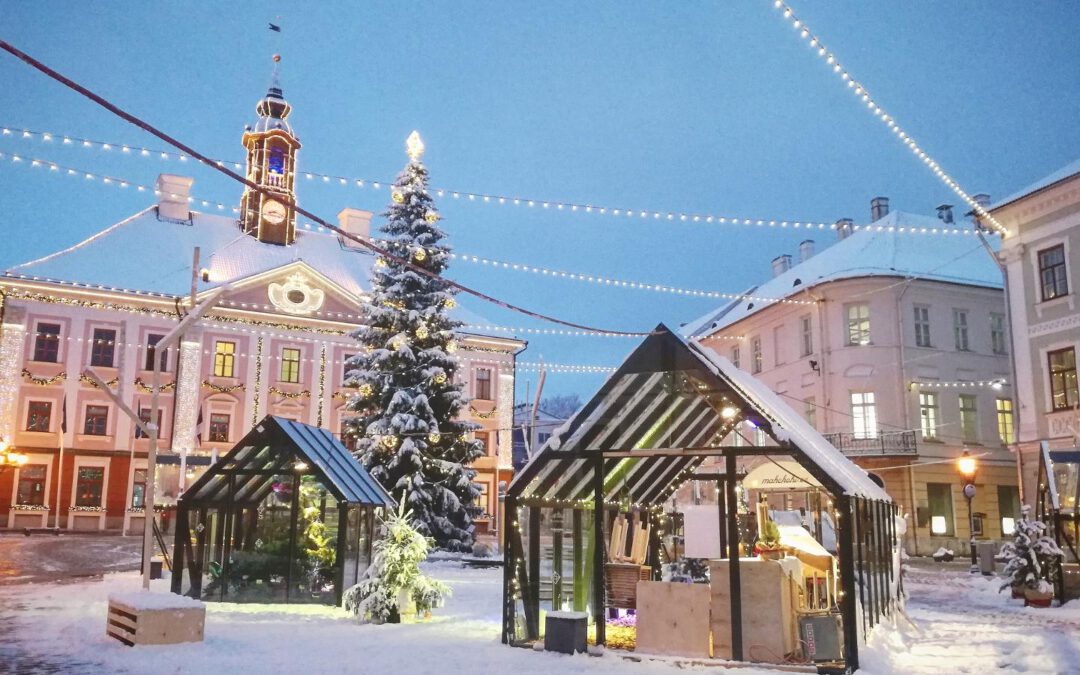The Communion of Protestant Churches in Europe has launched a programme of „European cities of Reformation“ to mark the 500th anniversary of the Reformation. To date, 102 cities in 17 European countries are part of the programme. The initiative promotes the rich interplay of art, culture and spirituality and encourages historical experiences and tourism in the cities of the Reformation.
The member church of the CPCE in Estonia is the Estonian Evangelical Lutheran Church. The Reformation reached Estonia in the early 1520s. In 2017 the CPCE designated the Estonian capital of Tallinn and Tartu as Reformation Cities on the basis of a joint application by the local city authorities and the Lutheran Church.
The European Union selected Tartu as Capital of Culture 2024 in recognition of the city‘s rich cultural heritage, dynamic arts scene and innovative approach to culture. This year, Tartu and Tartu County will have the opportunity to present its unique multi-ethnic history, art, music and other cultural areas to the whole of Europe. The Capital of Culture title will bring a series of events, festivals and exhibitions that will shape the urban space and enliven cultural life in and around Tartu.
Tartu is the oldest city in Estonia, first mentioned as a city in 1030. Today, Tartu is the second largest city after Tallinn and an important part of Europe’s cultural heritage.
The University of Tartu, founded in 1632 by King Gustav II Adolf, is one of the oldest universities in Northern and Eastern Europe, making Tartu a centre of education and research in Estonia and underlining the city’s cultural importance.
The congregations of Estonia’s traditional cultural centre hope that Tartu, one of the three European Capitals of Culture in 2024, will also be experienced as a vibrant and dynamic centre of religious life in Estonia.
___________________________________________________________________________
Die Gemeinschaft Evangelischer Kirchen in Europa hat anlässlich des 500. Jahrestages der Reformation ein Programm der “Europäischen Reformationsstädte” ins Leben gerufen. Bislang sind 102 Städte in 17 europäischen Ländern Teil des Programms. Die Initiative fördert das reiche Zusammenspiel von Kunst, Kultur und Spiritualität und regt zu historischen Erfahrungen und zum Tourismus in den Reformationsstädten an.
Die Mitgliedskirche der GEKE in Estland ist die Estnische Evangelisch-Lutherische Kirche. Die Reformation erreichte Estland in den frühen 1520er Jahren. Im Jahr 2017 ernannte die GEKE die estnische Hauptstadt Tallinn und Tartu auf der Grundlage einer gemeinsamen Bewerbung der örtlichen Stadtbehörden und der lutherischen Kirche zu Reformationsstädten.
Die Europäische Union wählte Tartu als Kulturhauptstadt 2024 aus und würdigte damit das reiche kulturelle Erbe, die dynamische Kunstszene und den innovativen Kulturansatz der Stadt. In diesem Jahr werden Tartu und der Kreis Tartu die Gelegenheit haben, ihre einzigartige multiethnische Geschichte, Kunst, Musik und andere kulturelle Bereiche ganz Europa zu präsentieren. Der Titel Kulturhauptstadt wird eine Reihe von Veranstaltungen, Festivals und Ausstellungen mit sich bringen, die den städtischen Raum gestalten und das kulturelle Leben in und um Tartu beleben werden.
Tartu ist die älteste Stadt Estlands und wurde erstmals im Jahr 1030 als Stadt erwähnt. Heute ist Tartu die zweitgrößte Stadt nach Tallinn und ein wichtiger Teil des europäischen Kulturerbes.
Die Universität Tartu, die 1632 von König Gustav II. Adolf gegründet wurde, ist eine der ältesten Universitäten Nord- und Osteuropas. Sie macht Tartu zu einem Zentrum für Bildung und Forschung in Estland und unterstreicht die kulturelle Bedeutung der Stadt.
Die Gemeinden des traditionellen kulturellen Zentrums Estlands hoffen, dass Tartu, eine der drei Kulturhauptstädte Europas im Jahr 2024, auch als ein lebendiges und dynamisches Zentrum des religiösen Lebens in Estland erlebt werden wird.
